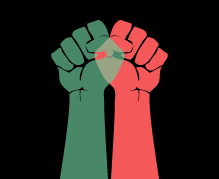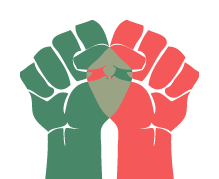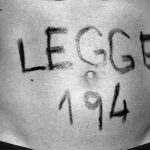As the referendum date approaches, the posters and campaigns from both sides are multiplying. Which is normal, but some of us are getting more familiar than we’d like with graphic images of foetuses, a crass use of children with disabilities and accusing, factually-incorrect texts. You know what I’m talking about. You’ve seen the posters.
While most of these posters didn’t stay in my mind for too long, there was one that made me think and consider certain things. Just perhaps not in the way anti-choice groups might have intended.
This particular poster said: “In England 1 in 5 babies are aborted. Don’t bring that to Ireland.”
I’m not even going to go into how that data is too complex to sumarise it into such simplistic statistics, but I am going to take the chance to be a bit cynical about it. And given the over 3000 Irish women who go to England for an abortion every year, chances are these abortions are still Ireland’s abortions.
But it wasn’t even that what made this poster stand out. Instead, I wondered what it reminded me of. And then I realised where I had seen this “not in Ireland” attitude before. Shaming women and their reproductive functions is written in Irish history. Ireland’s institutions have upheld motherhood above anything else as long as it fit their bill. It’s there in the Magdalene Laundries where a bunch of self-righteous people said “not in Ireland!” and covered women with shame in the name of what’s moral. It is there with the thousands of Irish children sold into adoption in the US by the Irish Catholic church because the circumstances of their birth didn’t abide by a certain moral code. The Tuam babies are an example of what happens when a group says “not in Ireland” and is more concerned with sweeping things under the carpet than protecting the dignity and well being of women and children.
Another anti-choice poster, in fact, claimed that legalising abortions would be Ireland’s next baby scandal, but the truth is, if you want baby scandals, look no further than the past: the Tuam babies, the Magdalenes, the adoption cases, the children in Catholic-owned orphanages who endured physical and mental abuse that scarred them for life, the dispossessed mothers who were considered too immoral to look after their children and all the women Ireland has covered in shame. And if you think that’s taking it too far, if reading this you think “I’m anti-choice, but I think the all those things were terrible!” then think whether or not your attitude mirrors the thinking behind those tragic events. The self-righteous attitude that said “You’re either with us or against us. Women who do this are evil! There is no middle ground or complexity to their situations.”
There is the chance to make a change now. As women stand up for themselves and acknowledge their rights, this morality that says you’re either with us or against us is becoming shakey. There’s an awakening in the Irish society where people are starting to realise that the implications of illegal abortion go beyond evil women who want to kill babies with a beating heart. It is connected to social and even economic factors, it is connected to women’s rights to bodily autonomy and an access to a healthcare system that can offer a complete, non-judgemental service. As a woman from another country I could recognise that the current situation is not normal, but now Irish people are recognising it too.
As a woman from another country, I also can’t help but associate this “not in Ireland” mentality with a territorial- not to say racist- pattern. And I know for a fact that Irish people like to think Ireland isn’t a racist country so it’s time they lived up to it. Another thing anti-choice (and sadly some pro-choice groups as well) tend to ignore is that Ireland is now the home of many cultures. As a modern country, Ireland has a duty not only to its citizens but also to the migrant women who constitute 17% of the population. Women who call Ireland a home, and who are disproportionately affected by this law. Because for them, taking their reproductive rights out of Ireland is an option that depends on documentation, money and family support they may not have.
It’s time for things to change. This referendum should be a chance for Ireland to prove that it can truly be better. That this “not in Ireland” attitude has no place in “the country of a hundred thousand welcomes”. Because so far it hasn’t been that welcoming to migrant women like Savita, Ms. Y or Bimbo, or to the over 3000 Irish citizens who travel abroad.




